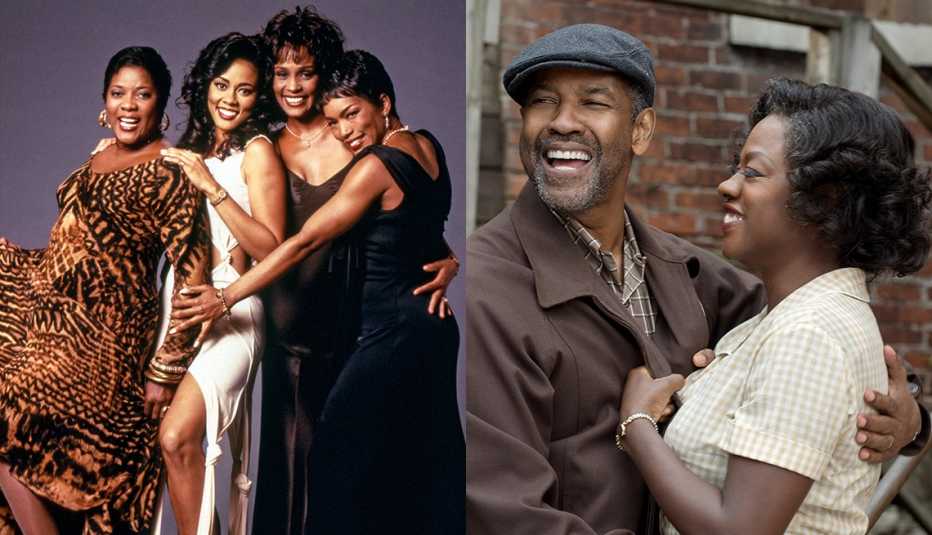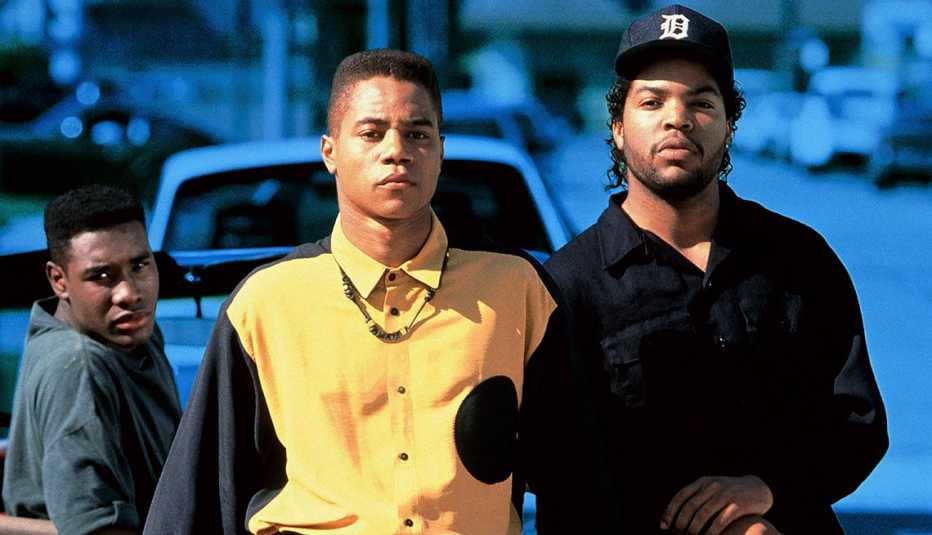AARP Hearing Center


In response to the call of summer’s Black Lives Matter protests, streaming services started offering movies depicting the “Black experience.” The quotes prove necessary. It’s tricky enough to capture the feeling of a people, let alone tell the story of a community that resists a one-size-fits-all approach. Still, you don’t have to go all professorial to know there are films that resonate with Black moviegoers a little differently than those depicting Black lives from a remove, or only in relation to white folks and racism. There’s always a little more texture woven in by a Black writer or director. It may be the way a father pauses to take the measure of his son, the way a mother hums, or how she looks across the table at an impertinent grownup child. (Remember Oprah at the dinner table in The Butler?) Yes, experience is vapor and a story passed down, but also a saga of resilience and abundance. Here are movies that run the gamut because, well, the Black experience does.
12 Years a Slave
Brit artist-director Steve McQueen’s take on the American horror story would make a tough but bold double feature with Get Out. A cordial dinner between a free Black man and a couple of white men turns catastrophic when he’s kidnapped and sold into slavery. Kafka’s inescapable nightmare has nothing on chattel slavery. While the outrages of the slave owner are woundingly vivid, it’s the movie’s graph on the psychological trauma and survival strategies that render Solomon (Chiwetel Ejiofor) and Patsey (Lupita Nyong’o) so wrenchingly authentic.
Watch here: YouTube, Amazon Prime, Google Play
A Raisin in the Sun
There was a time in the ’60s when some Black critics grew pointedly dismissive of Sidney Poitier’s growing stature as one of America’s great actors, treating his characters as too establishment-pleasing to be significant. To do that was to ignore what he always brought to the screen: the deeper truths of the men he played. Behold Walter Younger’s thwarted aspirations, pent-up anger and simmering frustration in the movie version of Lorraine Hansberry’s groundbreaker about a South Side Chicago family. He embodies the coiled start of an answer to poet Langston Hughes’ query, “What happens to a dream deferred?”
Watch here: Amazon Prime, Google Play, iTunes
Barbershop
Director Tim Story takes a chair at the go-to location for enthusiastic dozens sparring, neighborhood gossip and community reckoning. This comedy’s location is the South Side Chicago shop of Calvin Palmer (Ice Cube) but could have been a gathering joint in Atlanta or Milwaukee or Denver, which would give the sauce its own flavor but never change the fact that you were at a vibrant barbecue. The franchise found a holler back in the Queen Latifah-led Beauty Shop movies.
Watch here: Showtime, Google Play, YouTube


Boyz N the Hood
Career-changing performances by Cuba Gooding Jr. and Ice Cube make it easy to forget how many actual kids live in the South Central Los Angeles neighborhood of writer-director John Singleton’s trailblazing debut. An internet description tags it “Drama/Crime,” which is boneheaded. There’s death, self-poisoning masculinity, gunplay. But to prioritize that is to ignore the fundamental thread: It’s about a father and a son, about women trying to figure out their place in that narrative while pursuing their own. It’s about the Black family as economically vulnerable, but also stout and aspiring. It’s about community self-love and, yes, self-sabotage. The scenes between Furious Styles (Laurence Fishburne) and Tre (as a 10-year-old and as a teen) offer a glimpse of fatherly tenderness worth the price of the ticket.
Watch here: Google Play, AMC, Amazon Prime


Cooley High
Boyz II Men titled its first album Cooleyhighharmony and covered the 1975 flick’s final song “It’s So Hard to Say Goodbye to Yesterday” for good reason. This 1975 coming-of-age film is a touchstone. It’s 1964 and best friends Richard “Cochise” Morris (Lawrence Hilton-Jacobs) and Leroy “Preach” Jackson (Glynn Turman) have plans to leave their Near-North Side Chicago stomping ground: smooth operator Cochise on a basketball scholarship, brainy Preach to pursue his California dreams. Funny but also unexpectedly crushing, the movie comes by its hints of Good Times and What’s Happening!! honestly — it was penned by Eric Monte, writer of those TV sitcoms.
Watch here: Vudu
Daughters of the Dust
Julie Dash’s history-making feature (the first by a Black female director distributed theatrically) offers a poetic, rich, near mythical, yet so embodied vision of three generations of Gullah Geechee women of South Carolina. That in itself would be a bold gesture of recovery, but the writer-director’s vision remains an invitation to Black filmmakers to spin ancestor tales into bold and haunting cinema.
Watch here: YouTube, Google Play






































































More on Entertainment
'They've Gotta Have Us': A Brilliant History of Black Cinema
Documentary casts fascinating light on a 'renaissance of black film'Kareem Abdul-Jabbar Produces and Hosts 'Black Patriots' Documentary
NBA star discusses his new project about the unsung heroes of the American Revolution6 Actors Who Played Martin Luther King Jr.
Binge-watch movies from 'Selma' to 'The Rosa Parks Story' that made the civil rights leader come alive on-screen